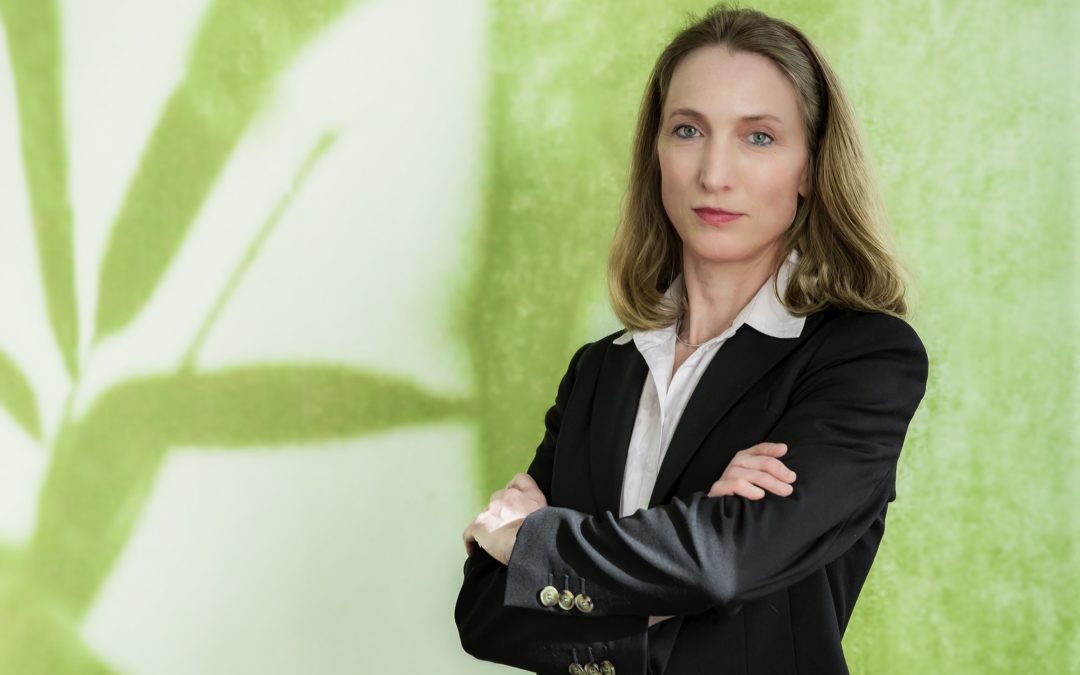
by Gary Mintchell | Oct 23, 2018 | Education
I had a problem in school–actually several. One was maturity. But then I grew up, finally. The big one was I was always asking why. Followed by its companion, “How do you know that is true?”
Rudyard Kipling had six honest serving men who taught him all he knew. I had two and forgot about the ones that the professors wanted–what, when, who, and where. A couple of professors taught thinking. Most asked for memorization.
I collect ideas about education. The Abundance Newsletter from Peter Diamondis should be on your reading list. He’s the X-Prize guy. He also thinks completely off the wall. You probably will only agree with half of his ideas, but the rest will change your life.
He was recently thinking about learning and compiled a list that is congruent with thoughts I have propounded for years. Try these on for size–and for practice:
For me it’s about passion, curiosity, imagination, critical thinking and grit.
-
Passion: You’d be amazed at how many people don’t have a mission in life… A calling… something to jolt them out of bed every morning. The most valuable resource for humanity is the persistent and passionate human mind, so creating a future of passionate kids is so very important. For my 7-year-old boys, I want to support them in finding their passion or purpose… something that is uniquely theirs. In the same way that the Apollo program and Star Trek drove my early love for all things space, and that passion drove me to learn and do.
-
Curiosity: Curiosity is something innate in kids, yet something lost by most adults during the course of their life. Why? In a world of Google, robots and AI, raising a kid that is constantly asking questions and running “what if” experiments can be extremely valuable. In an age of machine learning, massive data and a trillion sensors, it will be the quality of your questions that will be most important.
-
Imagination: Entrepreneurs and visionaries imagine the world (and the future) they want to live in, and then they create it. Kids happen to be some of the most imaginative humans around… it’s critical that they know how important and liberating imagination can be.
-
Critical Thinking: In a world flooded with often-conflicting ideas, baseless claims, misleading headlines, negative news and misinformation, learning the skill of critical thinking helps find the signal in the noise. This principle is perhaps the most difficult to teach kids.
-
Grit/Persistence: Grit is defined as “passion and perseverance in pursuit of long-term goals,” and it has recently been widely acknowledged as one of the most important predictors of and contributors to success.

by Gary Mintchell | Sep 4, 2018 | Education, News, Organizations
 OPC Foundation’s continuous improvement program extended with the addition of new Chair for its Board of Directors. I haven’t had an OPC Foundation conversation since April. Based on conversations with numerous leaders in Hannover, I think this is a great step forward by the Foundation’s board of directors. I’m not sure what precipitated the addition, but I’ve met Schmid-Lutz and she’ll do an excellent job of bringing cohesiveness and direction to the organization.
OPC Foundation’s continuous improvement program extended with the addition of new Chair for its Board of Directors. I haven’t had an OPC Foundation conversation since April. Based on conversations with numerous leaders in Hannover, I think this is a great step forward by the Foundation’s board of directors. I’m not sure what precipitated the addition, but I’ve met Schmid-Lutz and she’ll do an excellent job of bringing cohesiveness and direction to the organization.
OPC UA is solid technology used by most automation and IoT companies. These moves to strengthen the organization can only be positive.
This from the original press release—In this key position, the Chair manages the strategic and tactical directives of the Board of Directors and ensures the marketing, technical, and overall business activities of the OPC Foundation consistently align with its vision and objectives. In addition, the Chair organizes and calls the Board of Directors meetings and engages directly with the organization’s infrastructure. The Chair position requires a dynamic leader who can navigate the political, business, and technical challenges associated with a standard setting organization.
Veronika Schmid-Lutz was honored by the trust and confidence placed in her by her fellow board members and noted that “being elected as the Chair of the OPC Foundation’s board is a great honor for me. My focus will be to strengthen and pursuing all aspects that make interoperability between devices, machines, and business systems as simple and as secure as possible.”
Thomas J. Burke, President of the OPC Foundation commented on the importance of the Chair position and why Ms. Schmid-Lutz was the right person to fill it, “Veronika clearly demonstrated her excellent leadership and business skills as a member of the OPC Foundation Board of Directors. Based on this I believe she is well suited to now serve as the Board’s Chair. With Veronika at the helm of the business, I look forward to see her facilitate and successfully drive the OPC Foundation vision into the next era.” Mr. Burke concluded saying “It’s a great honor to have Veronika accept this important leadership role. We look forward to see her oversee communicating the importance of OPC UA into the IT world.”
Recognizing the value of both the organization and its deliverables, Veronika Schmid-Lutz emphasized the importance of OPC UA by noting: “Easy interoperability is an important enabler for intelligent systems leveraging new technologies in software and hardware. SAP strongly supports OPC UA as it simplifies and accelerates information exchange between heterogeneous systems and devices which is why Platform Industrie 4.0 has made OPC-UA a key component of its RAMI architecture. The board looks forward to continue enhancing the value of both the organization and its deliverables.”

by Gary Mintchell | Aug 13, 2018 | Education, Podcast, Productivity
What you fill your mind with is what you become. You can spend your life listening to bubble gum for the brain or stuff designed to stir up your emotions–or, you can fill your mind with positive thoughts and material designed to teach and expand you.
I listen to podcasts. At least an hour a day. I just finished one that is a must-listen. (Of course, other than mine 🙂
This is the podcast of Tim Ferriss (4-hour Work Week, Tools of the Titans, etc.). He just interviewed George Raveling in the most fascinating conversation I’ve heard in years.
Learn about his reading habits and how he takes notes. He gifted Ferriss with a number of books including one of my favorites–Eric Hoffer’s The True Believer-Thoughts on the Nature of Mass Movements. I read it in the mid-60s and the ideas have formed much of my outlook. He wrote it in 1951, but it is just as relevant today.
Raveling was the first black basketball head coach in the PAC 8 (later PAC 10) at Washington State and then the first black head basketball coach in the Big 10 while at Iowa. Later he coached at USC. He became Global Director of Sports Marketing at Nike and was instrumental in signing Michael Jordan and beginning the Air Jordan dynasty.
He was born in Washington, D.C. and essentially orphaned at age 13. He tells the story of getting into a Catholic school, his many mentors, and how he wound up on the podium during Martin Luther King’s “I have a dream” speech.
For your own personal growth and development, you need to listen to this.
A couple of quotes:
“I’ve always had this theory that, if you help enough people get what they want, you’ll always get what you want.”
“If it has to be, it’s up to me.”

by Gary Mintchell | Apr 13, 2018 | Education, Productivity
Just give them a pencil and paper and let them write whatever comes to mind with no thought of spelling, grammar, or coherence. We don’t want to squelch a child’s creativity.
I’ve heard this “advice” until I am sick of it.
Study any artist. Especially the great (and creative) ones. They all learned, usually through a teacher and mentor, the basics of color, proportion, composition, and anatomy. The creativity came with using the basics in new ways–seeing things others had not. Picasso was great as a “realistic” painter, but then he decided to try to find the essence of the object or person he was painting. He pushed the boundaries with cubism.
You could pick up a guitar and start strumming and picking. Or–you could learn sounds and notes. Tune the guitar. Learn some basic chords. You only need to learn D-C-G and you can play hundreds of rock and folk songs. Just experiment different rhythms within the pattern. Maybe try an added note–go ahead, throw in a C-9 to the progression. If you only learned C-A minor-F-G, you could play around with the progression and play another hundred early rock songs. You’re only truly creative when you can build on the foundation of what works.
Writing is communication. Humans have known just about since the dawn of communication about logic. When you are expressing something, it must proceed logically. Spelling helps us convey the correct word (and it helps if you turn off autocorrect on your iPad, for example). Grammar helps us express a clear idea. Try the book “Eats Shoots and Leaves” or is it “Eats, Shoots, and Leaves”.* Do you get the different meanings? Logic helps us lead our reader to understanding.
We do the same thing in automation or software. We know the essentials of if-then-else logic or arrays or programming APIs. We build on them to construct systems.
No, it’s not “creativity” that we need to worry about in that way.
The real crime is when we kill a child’s (or an adult’s) curiosity.
I love this little poem from Rudyard Kipling:
I have six honest serving men. They taught me all I knew. There names are What, and Where and When; and Why and How and Who.
*There is a story about a Panda who walks into a bar. He orders a sandwich and eats it. He then pulls out a gun and shoots the bartender. He left. Lying on the bar was a field guide to Pandas where an editor had inserted a fatal comma.

by Gary Mintchell | Feb 2, 2018 | Education, Leadership
How about you? Do you feel like you know everything you need to know? Do you hate asking people for directions?
Whether you are in business or ministry or family–do you have all the answers?
While I usually write about technology, I’ve learned the hard way that people are as important as the technology. I’ve seen my technology implementations fail because of the failure to get people on board. And how often have we seen people in critical situations fail to communicate at the cost of people’s lives? All through failure of asking appropriate questions.
Edgar H. Schein writes in his book, “Humble Inquiry: The Gentle Art of Asking Instead of Telling,” that many people would rather fail than admit their dependency on another person. That is, by asking them a question and admitting that someone else has an answer.
How about succeeding together?
Try Humble Inquiry. Asking questions implies that someone knows something I don’t–even if they are a subordinate, or younger than I, or from a different background. I must humble myself to ask someone placing myself in a position of learner to someone superior to me in this situation. It is the opposite of what we are taught in our culture which places emphasis on telling.
I’ve talked often about the skills of listening. Often we need to ask questions to elicit something to listen to.
Schein says, “The kind of inquiry I am talking about derives from an attitude of interest and curiosity. It implies a desire to build a relationship.”
We must slow down to ask and then listen.
Again Schein says, “I find that the biggest mistakes I make and the biggest risks I run all result from a mindless hurrying. If I hurry, I do not pay enough attention to what is going on, and that makes mistakes more likely. More importantly, if I hurry, I do not observe new possibilities.”
Let’s think about this comment in the context of hazardous situations
He points out in our “Do and Tell” culture, the most important thing we need to learn is to reflect. Before doing something, apply Humble Inquiry to yourself. “Ask ourselves: What is going on here? What would be the appropriate thing to do (Wow, there are hundreds of men right now who wish they had asked themselves that question)? On whom am I dependent? Who is dependent upon me?”
In other words, become more mindful.
“The toughest relearning, or new learning, is for leaders to discover their dependence on their subordinates, to embrace Here-and-now Humility, and to build relationships of high trust and valid communication with their subordinates.”
Schein was an MIT professor and business consultant. You can substitute parent for leader and use the ideas in family.
Read and digest the book. It’s short and not technical. Good read.

by Gary Mintchell | Sep 5, 2017 | Education, News, Workforce
How much should we worry about the next generation manufacturing workforce? An email came through late last week from an organization that I’d heard of but never had any dealings with—Junior Achievement. Press release was titled, “Labor Day Blues: Three-in-Four Parents and Teens Concerned Global Competition and Automation will Make it Difficult for Next Generation to Have a Successful Job/Career”.
A new survey from Junior Achievement USA (JA) shows that 77 percent of parents are “concerned” about their children’s ability to have a successful job or career as adults in light of global competition and automation. The same percentage (77%) of teens said they share similar concerns about having a successful job or career in the future because of global competition and automation. The survey of 1,204 parents of school-aged students and 1,000 teens was conducted by ORC International for JA.
So I thought, this is interesting, but is it new? My parents were worried about my future employability when I graduated from high school a long, long time ago. I probably had some concern about my kids, but I’m generally more optimistic and have higher expectations, I guess, than others. (They are both doing well.)
Just wondered if they had run this survey every year for the past 50 would there be any trend? Or, are they just rushing to capitalize on the current state of media who relishes negative news?
Then I thought about some (not all) parents I run into through my soccer work. I’ve met the “helicopter parent”. They have kids who referee soccer, too. I’d imagine parents with that mindset would be concerned—probably for the rest of their lives.
On the other hand, I wouldn’t let my optimism get in the way of preparation. The JA CEO is on the right track here.
“Education and skills are going to be critical for the next generation’s success in an ever-changing workplace,” said Jack Kosakowski, CEO of Junior Achievement USA. “Many of the entry-level jobs we know today won’t be around in the next decade, and many of the jobs of tomorrow haven’t even been conceived of yet. It’s important we encourage our young people to explore post-secondary education, whether that be a university, community college, or a technical or trade school. Having some level of technical training is going to be critical for future career success. A high school diploma or GED just won’t be enough for many jobs.”
The Future Workforce Survey
In the survey, nearly half (45%) of parents said that they were “extremely or very” concerned about their children’s prospects for future employment, while almost as many teens (40%) had the same level of concern.
The survey was conducted in conjunction with the fall rollout of Junior Achievement’s work- and career-readiness programs. For more detail on these and other JA programs, visit JA’s programs page.
Methodology
This report presents the findings of ORC International’s Online and Youth CARAVAN surveys conducted among a sample of 1,204 parents of school-aged children and 1,000 13-17 year- olds. These surveys were conducted live from June 29 to July 6, 2017, for the parents’ portion and from July 11 to July 16, 2017, for the teens’ portion.
Respondents for this survey are selected from among those who have volunteered to participate in online surveys and polls. Because the sample is based on those who initially self-selected for participation, no estimates of sampling error can be calculated. All sample surveys and polls may be subject to multiple sources of error, including, but not limited to sampling error, coverage error, error associated with nonresponse, error associated with question-wording and response options.
About JA
Junior Achievement is the world’s largest organization dedicated to giving young people the knowledge and skills they need to own their economic success, plan for their future, and make smart academic and economic choices. JA programs are delivered by corporate and community volunteers, and provide relevant, hands-on experiences that give students from kindergarten through high school knowledge and skills in financial literacy, work readiness, and entrepreneurship. Today, JA reaches 4.8 million students per year in 109 markets across the United States, with an additional 5.6 million students served by operations in more than 100 countries worldwide.
–Gary Mintchell



 OPC Foundation’s continuous improvement program extended with the addition of new Chair for its Board of Directors. I haven’t had an OPC Foundation conversation since April. Based on conversations with numerous leaders in Hannover, I think this is a great step forward by the Foundation’s board of directors. I’m not sure what precipitated the addition, but I’ve met Schmid-Lutz and she’ll do an excellent job of bringing cohesiveness and direction to the organization.
OPC Foundation’s continuous improvement program extended with the addition of new Chair for its Board of Directors. I haven’t had an OPC Foundation conversation since April. Based on conversations with numerous leaders in Hannover, I think this is a great step forward by the Foundation’s board of directors. I’m not sure what precipitated the addition, but I’ve met Schmid-Lutz and she’ll do an excellent job of bringing cohesiveness and direction to the organization.



